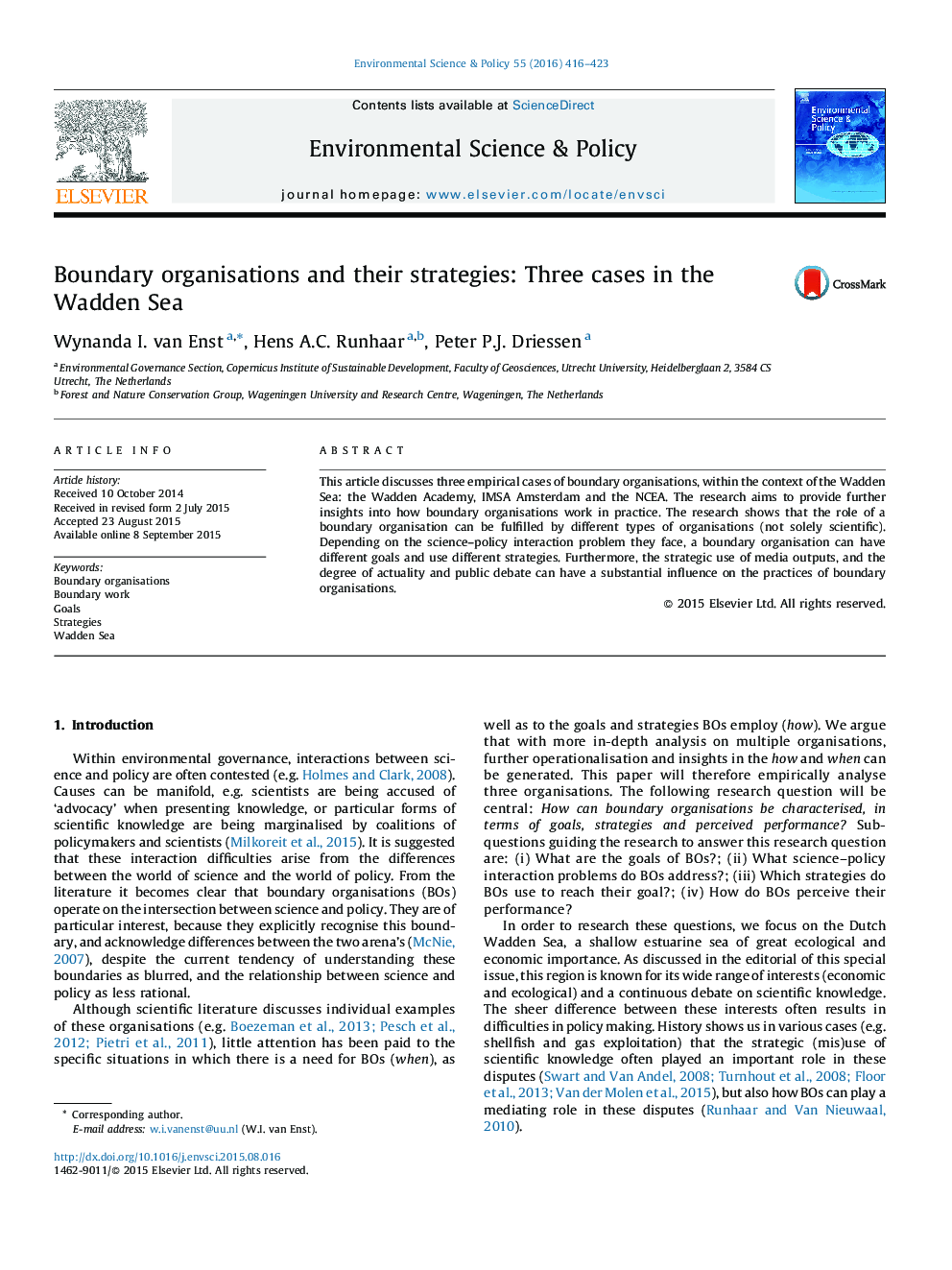| Article ID | Journal | Published Year | Pages | File Type |
|---|---|---|---|---|
| 1053439 | Environmental Science & Policy | 2016 | 8 Pages |
•We examine three boundary organisations in the Wadden Sea area.•We research their goals, the interaction problems they focus on, and their strategies.•Boundary organisations form a heterogeneous group of organisations.•Enabling factors are of great importance to the performance of boundary organisations.•There is a clear lack of success indicators for boundary organisations.
This article discusses three empirical cases of boundary organisations, within the context of the Wadden Sea: the Wadden Academy, IMSA Amsterdam and the NCEA. The research aims to provide further insights into how boundary organisations work in practice. The research shows that the role of a boundary organisation can be fulfilled by different types of organisations (not solely scientific). Depending on the science–policy interaction problem they face, a boundary organisation can have different goals and use different strategies. Furthermore, the strategic use of media outputs, and the degree of actuality and public debate can have a substantial influence on the practices of boundary organisations.
